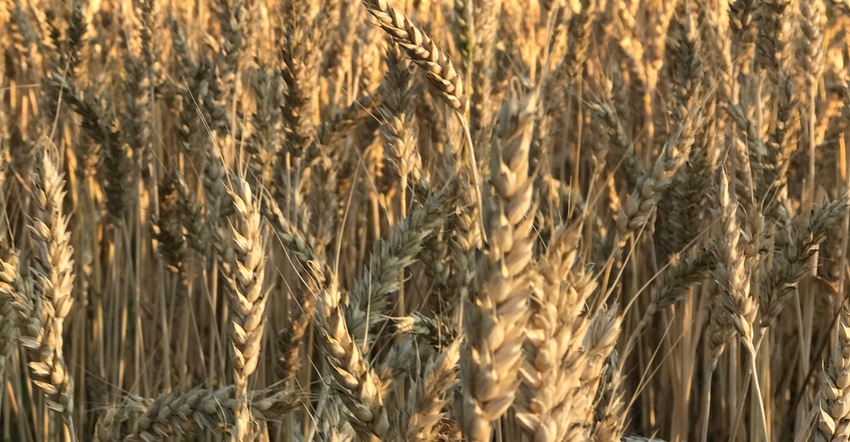
Michigan and Ohio growers are partnering with their Canadian neighbors to form the Great Lakes YEN. No, it’s not a new version of the Japanese currency, but rather a collaborative effort to help growers improve crop returns by closing the gap between potential yield and actual yield by understanding the limiting factors. YEN stands for Yield Enhancement Network, and the idea is to collect data on every aspect of wheat production, compile it and then use it to develop detailed reports for growers.
While some of the information is confidential regarding individual farms, growers are able to compare their yields to others using benchmarking.
“It’s a box and whisker plot, which is a statistical term showing the range of values for every data point,” explains Dennis Pennington, Michigan State University wheat specialist. “Growers will know where they are in relation to everybody else. They won’t know who is at the top, who’s at the bottom, or who’s in the middle, but they will know where they are in relation to all the other samples.”
The Great Lakes YEN is a collaboration of agricultural stakeholders connecting farmers, agronomists, academics, Extension specialists, agriculture organizations and more.
The inaugural project is focused on winter wheat and covers the geographic area of the province of Ontario (23 growers) and the states of Ohio (three growers) and Michigan (18 growers) at this time.
The YEN project originated in the United Kingdom nine years ago by Adas, an independent agricultural and environmental consultancy and provider of rural development and policy advice in the United Kingdom.
The Great Lakes YEN, developed by the Michigan Wheat Program, Michigan State University, Grain Farmers of Ontario, the Ontario Ministry of Agriculture, Food and Rural Affairs, and the University of Guelph, will build off the strong history of the United Kingdom YEN.
Benchmarking progress
Every farm involved in the Great Lakes YEN will share soil, tissue and whole-plant analysis for comparison and benchmarking, which will allow the Great Lakes YEN team to offer better insight into each field’s performance.
According to Pennington, every field is different and has different yield potential based on a multitude of factors, such as:
environment (rainfall, sunlight)
soil (water-holding capacity, nutrient level)
management (inputs used and timing)
Networking is also part of the project, as well as a yield contest.
“One of the components of this project is a networking session, where we’d hand out yield awards, and everybody shares ideas, identify production issues and some of the ranges,” Pennington says. “We might explore what different farms are trying and what has been successful. For example, if I'm a grower and my boron tissue test levels are low compared to everybody else, I might try to find out what everybody's doing about boron on their farms. And so that might be something I could try.
“This networking session is a chance for growers to share what information they're willing to share with each other.”
A leadership team meets weekly to work on developing reports for individual farms. “We hope to automate the report as much as we can,” Pennington says.
The next step is to cultivate sponsors so the project can be open to all growers. “Right now, we've got about $500 per farm just in tissue, soil and grain sampling costs. The first-year costs are being covered by the Michigan Wheat Program, Grain Farmers of Ontario and BASF, which is sponsoring the Ohio growers. We need sponsors going forward.”
For this year, Pennington has been collecting all the samples and doing a majority of the data entry. “Growers are doing some of the data entry, but if we're going to expand this to more growers next year, we are going to have to do training so they can collect their own samples,” he says. “And an app can be downloaded to enter their data.”
Applications for the 2021-22 Great Lakes YEN are being accepted. For more information, visit Great Lakes YEN or look for the hashtag #GreatLakesYEN.
For those companies interested in joining the Great Lakes YEN as a sponsor, contact Jody Pollok-Newsom with the Michigan Wheat Program at [email protected], or Marty Vermey with the Grain Farmers of Ontario at [email protected].
About the Author(s)
You May Also Like






